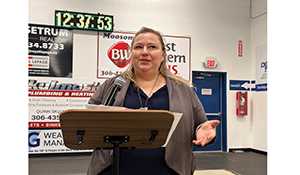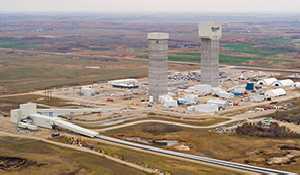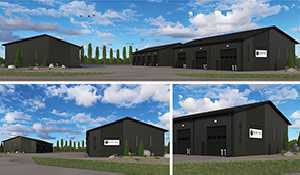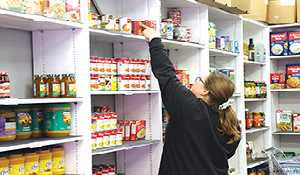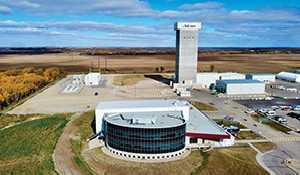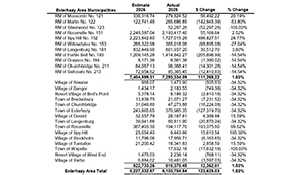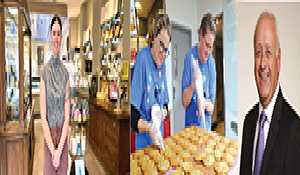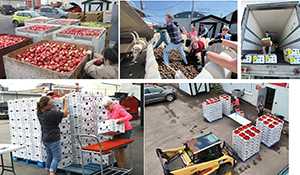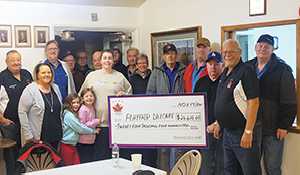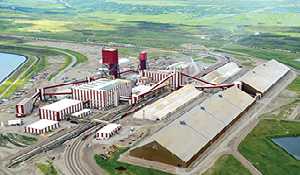Harvest of Hope brings in over 9,000 bushels
To date, project has generated $3.1 million for Canadian Foodgrains Bank
September 30, 2024, 10:02 am
Ryan Kiedrowski, Local Journalism Initiative Reporter
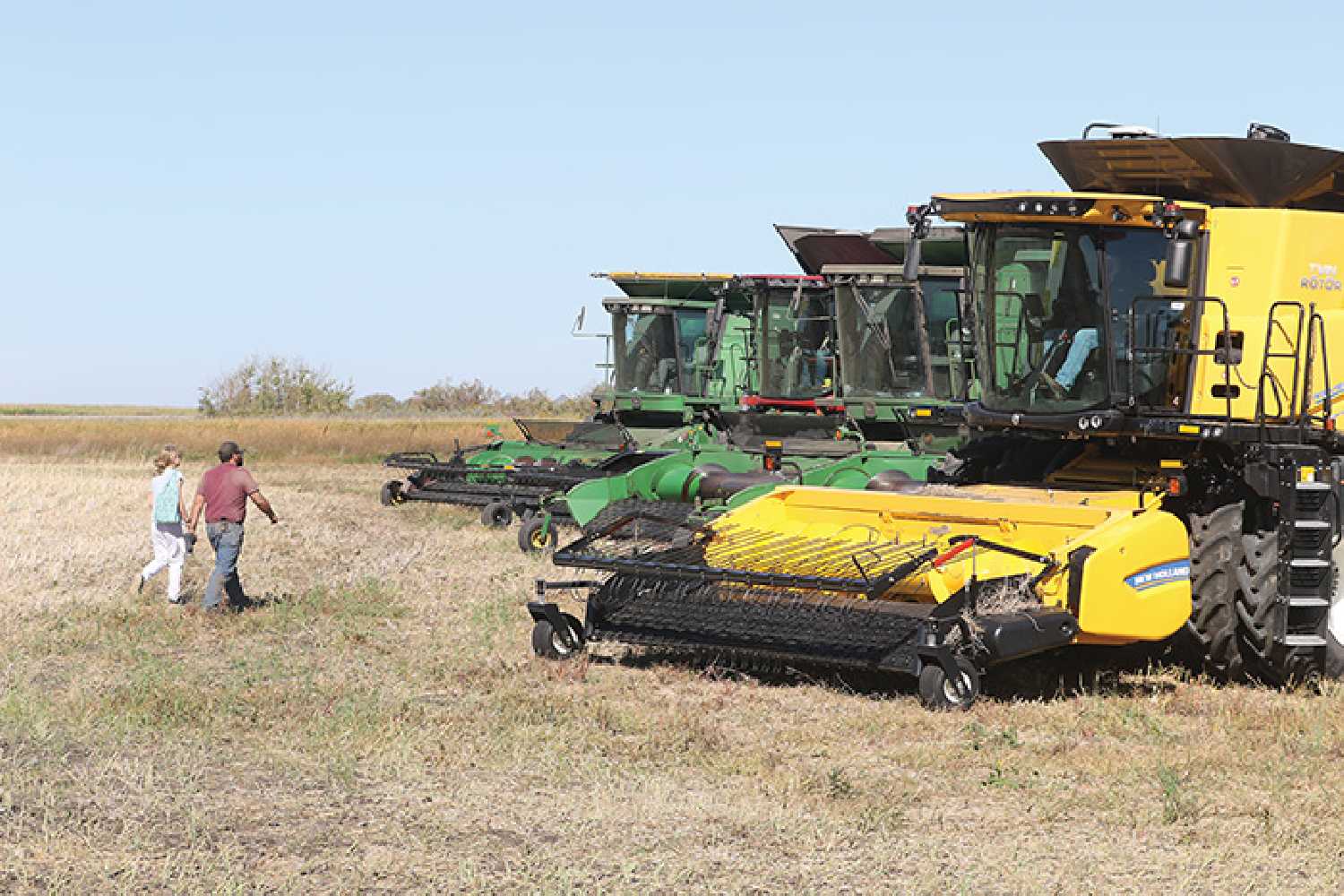

It was harvest day Wednesday for the largest Canadian Foodgrains Bank growing project in Saskatchewan, right in the local area.
A large number of volunteers and donated equipment went to work on a 280-acre field between Moosomin and Rocanville, taking off the canola to benefit the Foodgrains Bank, and the Moosomin and Rocanville food banks.
Since it began, the Harvest of Hope has raised $620,000, not including this year’s crop—money that is matched four times by the federal government, bringing the total amount that the Canadian Foodgrains Bank has received because of the Harvest of Hope to $3.1 million. This year’s harvest will add to that total.
“Things went really well, we were able to take the crop off in about four-and-a-half hours,” said Kyle Penner, an organizer with the local Harvest of Hope group. “Today we had eight combines, two grain carts and four trucks.
“The carts definitely were a real blessing. They kept the combines rolling, and as they were able to go, they filled the trucks, and then all four trucks would basically go all to the elevator at once. It worked really well.”
Thanks to a beautiful fall day, the entire crew was able to leave the field around 6 p.m.
“We typically cycle between canola and wheat every year, so last year was a wheat year, and this year in the rotation is a canola crop,” Penner explained. “With the wind, all the chaff flew the right way. Nobody got too dusted out!”
This is the 11th year for the Moosomin project, and Penner credits all the volunteer support for their continued success.
“Lots of people do a little bit, and that helps to spread out the load; the burden of the crop, but also everybody pitches in a little bit, and it all comes together in the end with a pretty big impact,” he said. “We’re quite grateful for that.”
In addition to those local volunteer farmers—who took time out of their own busy fall work—local companies also played a role. Väderstad seeded the field plus Pattison John Deere, Rocky Mountain Equipment, and Mazer Equipment were all represented.
“It’s been really interesting to watch how much support the project gains year over year,” Penner said. “We always seem to pick up another one or two or three people who are willing to contribute to the cause. We have a good cause that people can get behind. As it builds momentum, we just continue to have really positive impact after we’re done. And that’s pretty cool.”
He explained that with all the money raised through the Harvest of Hope project is devoted to food security initiatives both local and on a global scale.
“All of it ends up in food security initiatives, but it ends up with that division that we’ve done recently between local stuff, and that’s been primarily through the Moosomin and Rocanville food banks helping them to operate, and then also through the Foodgrains Bank, which are dealing with emergency food assistance in places all over the world,” Penner said. “People displaced through the war in Ukraine, people displaced through the war in in Syria, people displaced through the war in Israel, they’re where people are getting kicked out of their homes and losing their livelihoods and need food right now, and they’re feeding them.”
He likes to use the analogy of building a bigger table to articulate the outpouring of shared good fortune.
Penner won’t know final numbers on how much was raised this year for a couple weeks yet, but he said the canola looked good coming off the field.
Larger impact
It’s amazing to think how harvesting one field in southeast Saskatchewan will go towards helping so many people. Even more astounding is what can happen when several groups get together for the greater cause.
“Growing projects since the late 1980s have been really the backbone of the overall support that is received by the Canadian Food Grains Bank,” said Rick Block, Foodgrains Bank representative for Saskatchewan. “Between 45 and even upwards of 50 per cent of our total donation income that comes to the Foodgrains Bank is received by virtue of registered growing projects, growing projects and community events.”
Total donations to the Canadian Food Grains Bank from Saskatchewan usually range between $2.5 to $2.7 million per year. That may sound like a huge number, but it’s also a reflection of the global need. Half of that comes from the 33 growing projects across the province.
“It’s designed to respond to basic human need and suffering, the kind that at the scale that we really don’t see in Canada,” Block said. “Our motto is for ‘a Christian response to hunger’. We seek to try to respond to any to situations all around the world where hunger is severe.”
In addition to these generous donations, the federal government has also maintained a longstanding commitment to the cause. Since the Canadian Foodgrains Bank inception in 1983, a partnership has been in place - then under CIDA, and currently through Global Affairs Canada. Recently, that commitment has been re-confirmed with an announcement of $100 million over four years.
“The Foodgrains Bank is very appreciative of this ongoing relationship with Global Affairs,” Block said. “There’s a $25 million pot available each year for the food greens bank that we can access funds based on donations that come in.”
That funding is specific to emergency food assistance and dollars are matched at a ratio of four to one.
“When you look at the reality of it, there is well over 800 million people worldwide that are really suffering from what we would term severe hunger, not really knowing where their next meal is coming from or impacted seasonally,” Block explained. “Our network is doing everything it can to ensure that it responds to those that have needs.
That response can take on many forms, even something as simple as a food voucher can make a massive difference. Block gave the example of Syrian refugees in Lebannon to illustrate the point.
“There’s vulnerability there, because they’re not really legally allowed to work, and often it’s mothers with children, and so the receiving of a food voucher - because there’s food in Lebanon, but the Syrians have difficulty in accessing food - those food vouchers allow the recipients to access food at kind of a designated locations,” he said. “This seems like a small gift, but it’s a huge gift. It’s a huge burden that is lifted when one isn’t having to worry about, how will they feed their children.”
Other forms may include training farmers in different countries or education on increased nutrition. Sadly, there is one major reason for the global need, as Block noted, “conflict really is probably the primary driver of hunger.”
The response from Canadian Foodgrains Bank is that of compassionate assistance while maintaining the dignity of those in need; much like how a local farmer might extend a hand to their neighbour who’s in need. In this case, it’s just a little longer reach.
“It’s incumbent that we are keeping our eyes open - like you say, it’s our global neighbours where the needs the greatest,” Block said. “We have a vast and vibrant network that really desires to respond to people, to provide supports so people can maintain their sense of dignity and maintain their livelihoods as best as possible.”
Rick and Jacquie Block have been with the Canadian Foodgrains Bank for the past eight years, with Jacquie actually being on the ground in Lebannon to assist Syrian refugees.
“We both obviously hold dearly to our Christian faith,” Rick said, explaining what drew the couple the Foodgrains Bank. “That calls us to want to do the work in whatever capacity we can to demonstrate God’s love and a sense of God’s compassion and justice. Obviously, this is a paid position that we are in, and so we feel really fortunate to be able to connect with so many people across Saskatchewan who are also wanting to kind of reach out to others who are in a really difficult or tough situation.”








